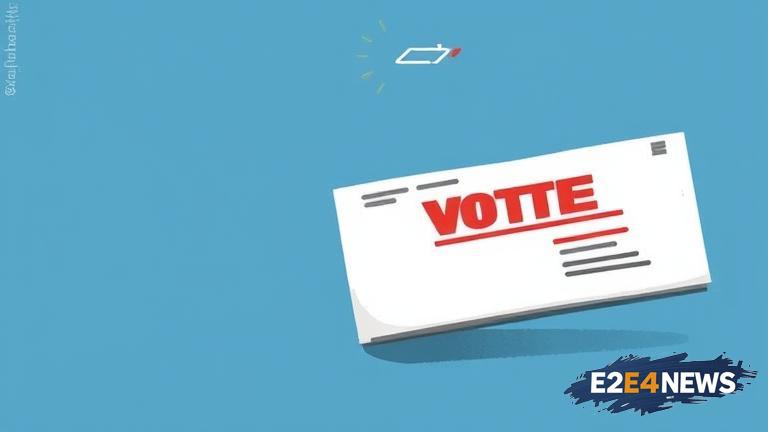The ongoing debate surrounding vote-by-mail has taken a contentious turn, with President Trump launching a series of attacks on the practice. Despite its widespread adoption and proven track record, Trump has repeatedly claimed that mail-in voting is prone to fraud and manipulation. However, numerous studies and experts have debunked these assertions, citing the robust security measures and safeguards in place to prevent tampering. The President’s crusade against vote-by-mail has sparked widespread concern among election officials, lawmakers, and civil rights groups, who argue that it undermines the very foundation of democratic elections. By casting aspersions on the integrity of the electoral process, Trump’s rhetoric has the potential to disenfranchise millions of voters, particularly those from marginalized communities who rely heavily on mail-in voting. The consequences of such a scenario could be far-reaching, eroding trust in the electoral system and potentially leading to a decline in voter turnout. Furthermore, the President’s actions have been seen as a thinly veiled attempt to suppress votes in key battleground states, where mail-in voting is expected to play a crucial role in the upcoming elections. As the nation grapples with the challenges posed by the COVID-19 pandemic, the need for reliable and accessible voting systems has never been more pressing. Vote-by-mail has emerged as a vital solution, allowing citizens to exercise their right to vote without compromising their health and safety. Nevertheless, Trump’s opposition to the practice has created uncertainty and confusion, leaving many to wonder about the future of electoral integrity in the United States. The issue has also sparked a heated debate among lawmakers, with Democrats pushing for expanded vote-by-mail provisions and Republicans advocating for stricter voter ID laws. As the stakes continue to rise, it remains to be seen whether the President’s attacks on vote-by-mail will have a lasting impact on the electoral landscape. The credibility of the electoral process hangs in the balance, and it is imperative that policymakers and election officials take immediate action to address the concerns surrounding vote-by-mail. This includes investing in robust security measures, enhancing voter education and outreach programs, and promoting transparency and accountability throughout the electoral process. By working together to strengthen the integrity of our elections, we can ensure that the democratic process remains vibrant, inclusive, and resilient. The fate of American democracy depends on it. The President’s actions have been widely condemned by civil rights groups, who argue that they disproportionately affect minority communities. The NAACP, the ACLU, and other organizations have launched lawsuits and advocacy campaigns to protect the rights of voters and ensure that the electoral process remains fair and accessible. The issue has also sparked a national conversation about the importance of voting rights and the need for comprehensive electoral reform. As the country moves forward, it is essential that we prioritize the integrity of our elections and work towards creating a more just and equitable democratic system. The future of American democracy depends on our ability to protect the rights of all citizens and ensure that their voices are heard. The President’s attacks on vote-by-mail are a stark reminder of the challenges that lie ahead, but they also present an opportunity for us to come together and reaffirm our commitment to the principles of democracy. By standing up for the integrity of our elections, we can build a brighter future for ourselves and for generations to come. The time for action is now, and it is imperative that we work together to protect the credibility of our electoral process. The consequences of inaction would be catastrophic, and it is our collective responsibility to ensure that the democratic process remains vibrant, inclusive, and resilient. The President’s assault on vote-by-mail is a wake-up call, and it is essential that we respond with urgency and determination. The future of American democracy is at stake, and it is our duty to protect it.
